The Quality Assurance Directorate is mandated to ensure the quality and integrity of petroleum products on the Ghanaian market. The directorate achieves this mandate by monitoring petroleum product quality at import points, refineries, depots and retail outlets nationwide. The Directorate also undertakes marking of petroleum products and field monitoring activities at points of consumption nationwide. The Quality Assurance Directorate is made up of the Quality Control (QC) and Petroleum Product Marking Scheme (PPMS) Departments.
SPACE text
The Quality Assurance Directorate which effectively monitors the quality of petroleum products along the supply and distribution chain, has put in place measures to ensure that all petroleum products supplied and consumed in the country meet the National Standards/Specifications on quality.

